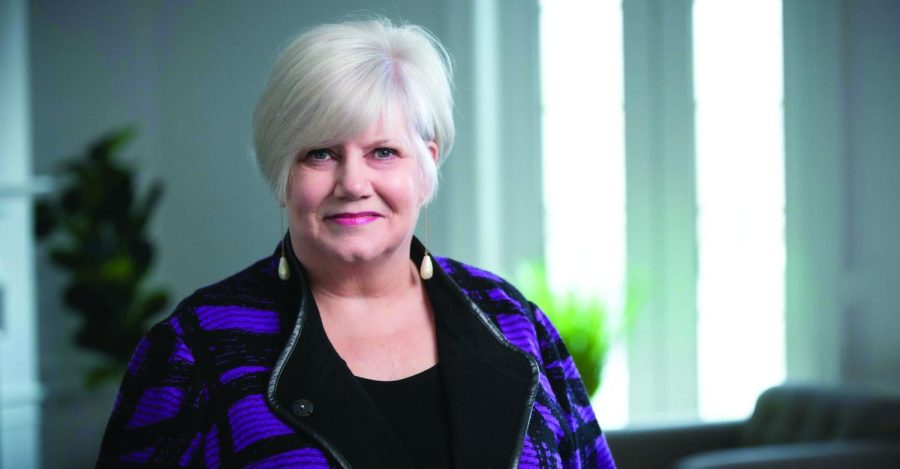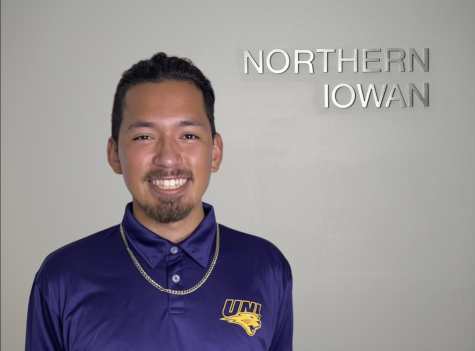Board of Regents approves nursing program
Nancy Kertz has been hired on as UNI’s executive director for nursing due to her past experience in developing both graduate and undergraduate nursing programs.
Nov 16, 2022
This past Wednesday, Nov. 10, the Board of Regents (BoR) approved adding a stand-alone nursing program at the University of Northern Iowa (UNI). This program will be designed to be a traditional stand-alone option. On Monday, Nov. 14, it was announced that Nancy Kertz, Ph.D., was selected as the executive director of nursing, and will be chief academic nurse administrator. Kertz has experience in developing nursing at the graduate and undergraduate level. Some of the next steps currently include the accreditation process with the Board of Nursing, developing the curriculum and working with the state and national accreditors to gain their support.
Right now UNI students have the option to do a 3 + 1 program where they get to do their first three years in biology and then transfer to Allen College to complete the Bachelor of Science in Nursing. Kertz mentioned she is wanting to continue the collaboration even if this program will be a stand alone.
“Students that come to UNI will know they have options. If students want an accelerated fast-paced option that Allen College has, they can come to UNI and complete their general education and the program prerequisites and go to Allen. If students want a more traditional pathway, they can come here and complete their Bachelor of Science in Nursing.” Kertz said.
During the Board of Regents meeting, it was reported that in Becker’s Hospital Review, “current trends show the global nursing workforce will hit 36 million by 2030, leaving a shortage of 5.7 million nurses.” In the report it was mentioned that countries around the world will need to increase the number of graduates by 8%. From a global perspective, Iowa Works reported there were 4,538 jobs available online as of Sept. 21, 2022. With the shortage it will take about over three months to fill. It was even addressed that in 2030 nursing will be a huge demand in Iowa. According to the Iowa Center for Nursing Workforce, 22% of Iowa registered nurses are eligible to retire right now. Currently many major medical centers and rural hospitals are forced to close entire floors due to this shortage.
“Five years ago it was rare to close a floor due to the lack of staffing. It might have happened in unusual circumstances.” Kertz said, “Now it’s common, when that occurs, then people who need surgeries or special procedures are having long waits because there’s not the staffing to care for them.”
Provost Jose Herrera said that for the three month hiring process, “The hiring market for nurses is incredibly tight because there are more openings than there are qualified people to take jobs. When the labor market is so tight, it is difficult to find candidates, and needed positions go unfilled.” He said in a statement, “The nursing shortage is nation-wide and goes back many years, but the pandemic elevated the shortage to a crisis… the Iowa Workforce Development office projects that nurses will still be the most needed job field in 2030 with over 35,000 positions state-wide. One of the issues that has contributed to the shortage is the number of available seats in nurse training programs.”
The investments for nursing
With the program being passed, it was reported this will enhance existing programs such as biology, pre-health, athletic training, public health and more support for university general education courses. Approximately $2 million in one-time cost will be spent in developing the infrastructure and modern facilities for the nursing students. To sustain the program an additional $1 to $2 million will be needed to generate fees, tuition and endowed gifts. The costs also include staffing costs. The program will also be supported from existing resources from the Office of Business Operations and the Office of the Provost.
Herrera addressed that the resources that will be reallocated are one-time dollars. “UNI has one-time (temporary) dollars that are typically used for maintaining infrastructure (updating plumbing, roofs, fixing windows etc). These budgeted (but unspent) dollars accumulate as faculty retire or move on from the institution.” Herrera said, “These dollars would not be available after this fiscal year but they are available as ‘one-time’ strategic activities (like standing up nursing) that need funds to prime enrollment and generate revenue.”
Francis Degnin, chair of United Faculty said, “I know that many faculty, myself included, don’t have a clear understanding of where the start-up costs are coming from. Faculty are worried that the high start up costs could be taking away from other needed faculty lines. However, the money is also in a different category. Start up costs are ‘one time’ money.” He said, “Faculty lines are ongoing costs. While they aren’t entirely separate in all cases, for the most part, the university can’t use one time money to fund ongoing needs. If they did, what would happen in the second or third year, after the one time money was depleted?”
A great concern that was pointed out by Degnin is the running costs that are going with the program. Whether this will be an asset or drain to other university programs at UNI. He mentioned that it was communicated to him that by the fourth year it will start paying for itself. Degnin also brought up in a statement that faculty were involved in the germination of the program through academic positioning.
“It’s possible that the running costs will also be in the black prior during one or two of the years previous to the fourth year. That’s because there will be very little in the way of new courses and faculty until students reach their 3rd year.” he said, “In the case of the nursing program, it seems clear that the running costs will be more than covered by tuition… to me at least, that the program will both serve to support the needs of Iowans and support the mission of the university as a whole. Moreover, it will do so, for the nursing students, at significantly lower tuition than many other programs.”
Projections
According to the report submitted to the Board of Regents, “there are students that are not applying (to nursing) because they cannot afford the tuition at a private Iowa nursing school.”
The first cohort will start in the Fall 2024 and the program will be projected to start with 24 students. It is projected that in five years the program will grow to a total of 96 students after its first cohort.
Through the Board of Regents, Senior Vice President of Patient Care Kelly Richards supports this initiative and stated in a letter of support, “We have committed to help UNI by giving their nursing students the opportunity to apply to train and work at our clinical sites. We are also committing to communicate opportunities for our clinical colleagues.”
Cedar Valley Medical Specialist, University of Iowa Director of Nursing Education Dawn M. Bowker and Iowa State University fully echo in supporting this implementation.
“There is sufficient evidence for the workforce needs in Iowa and UNI’s ability to provide a quality program…Based on the evidence and documentation, this program is likely to benefit the state of Iowa,” a letter signed by the council of provost stated.
According to the University of St. Augustine for Health Sciences, it was reported that between 2020 to 2021 there were 80,000 individuals qualified to go into a nursing program.
“There were 80,000 individuals in the U.S. that wanted to be a nurse and who met all of the qualifications to gain entry into a nursing program. They couldn’t get into a nursing program because there weren’t enough seats available. So, programs were at their capacity… I want to stress that I want every nursing program in Iowa to be full, I want them to be successful. We are all responsible to meet the needs of our communities and to educate more nurses for Iowa.” Kertz said.









